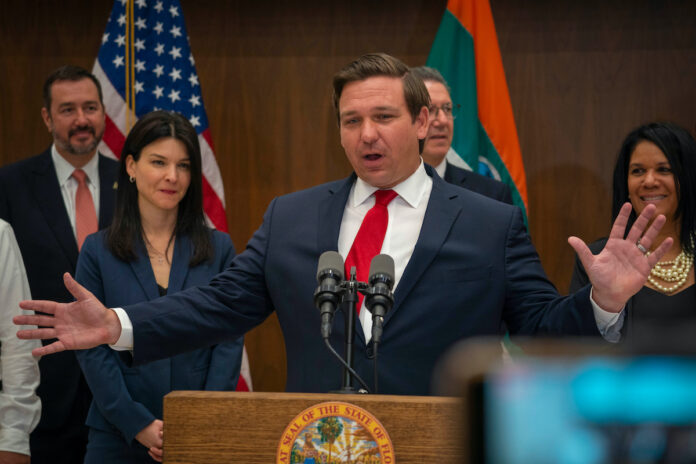TALLAHASSEE, Fla. – Florida’s November ballot initiative to legalize recreational cannabis is a hot-button issue in a major election year, a time when the dreadful art of pandering starts reaching its biannual crescendo.
Although surveys consistently show a majority of voters support legalizing adult use via 2024 Florida Amendment 3, 60 percent of those who actually make it to the polls must vote “yes” for the amendment to become law. At the moment, pollsters seem unable to nail down how likely that might be.
A Suffolk University/USA TODAY/WSVN-TV poll of 500 likely voters conducted between Aug. 7 and 11 showed the measure passing with 63 percent of the vote. According to Miami’s news WSVN 7News, the results indicate Measure 3 is “all but certain to pass” in November.
“The marijuana question has wide support across all demographics,” said David Paleologos, director of Suffolk University Political Research Center.
Meanwhile, a separate Florida Atlantic University poll conducted Aug. 10–11 among 1,055 registered voters showed 56-percent support with 15 percent of respondents undecided.
U.S. Rep. Lois Frankel, a Florida Democrat, voted to support federal bills that would have legalized cannabis in 2020 and 2022, but she now counts herself among the undecided. The longtime congresswoman and two-term mayor of West Palm Beach voiced concerns about impaired driving during an interview at the Democratic National Convention this week.
“I don’t know if I’m voting for it,” she told Marijuana Moment. “I haven’t thought it through. Driving while high, that’s my biggest concern.”
Florida Governor Ron DeSantis, on the other hand, is firmly decided against the measure, arguing its passage would reduce quality of life across the state.
Amendment 3 “is not just to decriminalize,” DeSantis said. “It’s basically a license to have [cannabis] anywhere you want. No time, place, and manner restrictions. This state will start to smell like marijuana in our cities and towns; it will reduce the quality of life.”
A senior DeSantis staff member, Christina Pushaw, is trying to sway opinion with manufactured fear about Big Cannabis.
“Why is it that other states that have passed recreational marijuana also allow individuals to home-grow, but Florida’s Amendment 3 specifically does NOT?” she asked on X. “It’s not about ‘freedom.’ It’s corporate greed.”
Kim Rivers, chief executive officer at Florida-based Trulieve, quickly pointed out how home-grow provisions were not allowed in Amendment 3 after the Florida Supreme Court ruled amendments must be constrained to single issues.
“While we could not include [home growing] in this amendment due to Florida Supreme Court single-subject rules (which [DeSantis] knows), this is absolutely something we can support via implementation in the legislature, and with the governor’s support, we can get it done,” she said.
State Sen. Joe Gruters (R), who’s also the former chairman of the Republican Party of Florida, bucked the state party by endorsing Amendment 3 while promising to introduce a bill to stop public smoking. In a prepared statement, Gruters said his support is a “common-sense decision that prioritizes individual freedom, health, safety, and economic growth.”
A defeat for Amendment 3 will be a significant loss for financial supporters including Trulieve. The company contributed about $61 million to the political action committee behind the ballot initiative. Slightly more than $4 million was donated by Florida-focused MSOs Green Thumb Industries and Curaleaf, bringing the campaign’s total contributions to $66.7 million. Total contributions for the opposition campaign reached nearly $14 million, most of which came from billionaire hedge fund manager Kenneth Griffin.










